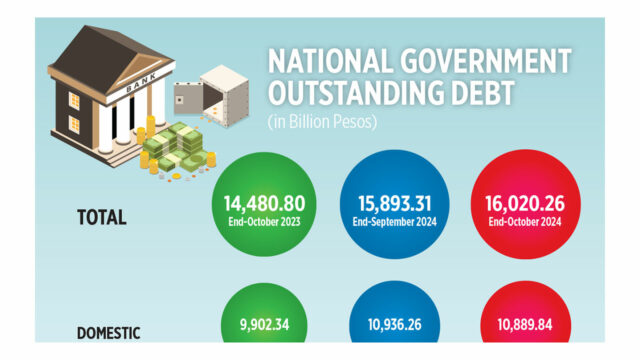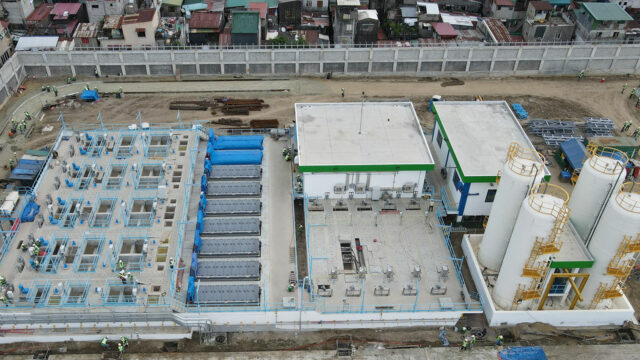WASHINGTON — For much of the past 17 years the US Federal Reserve has been the central player in US economic policy, throwing multitrillion-dollar safety nets under the financial system, offering nearly a decade of ultra-cheap money, jumping red lines during the COVID-19 pandemic, and delving more into areas like equity and climate change.
But that expansive role has now shrunk to one of terse policy statements, a meat-and-potatoes debate over interest rates, a declining stash of bonds, and a growing possibility that Fed Chair Jerome H. Powell may be remembered both as the man who got the US through the economic crisis triggered by the pandemic and the one who made central banking boring again.
Former St. Louis Fed President James Bullard was on the policy-making team that saw the central bank’s role expand during the 2007-2009 financial crisis, watched as it mushroomed again during the pandemic and sees it now morphing back into something more normal.
In recent years “we had to go back to kind of heavy-duty inflation fighting that is reminiscent of the old days when you did not worry about the zero lower bound, you did not worry about balance sheet policy,” Mr. Bullard said. “It is kind of plain vanilla in that respect. Times have changed.”
Mr. Bullard, who is now the dean of the Mitch Daniels School of Business at Purdue University, will give the opening address on Monday at a conference in Washington about the Fed’s monetary policy framework and its strategy for achieving its mandate to foster price stability and maximum employment.
For all the potential controversy around the Fed posed by Donald J. Trump’s victory in the Nov. 5 election – hints, for example, that the US president-elect might rekindle his first-term feud with Mr. Powell by trying to fire or undercut him — there’s an alternate possibility that the framework discussion highlights: That with inflation coming under control, the economy growing, and interest rates in their longer-run historic range, the central bank may be moving somewhat offstage, with its steady focus on inflation now the important thing for the incoming administration to sustain.
SUPER-LOW RATES NO LONGER NEEDED
Mr. Trump’s initial picks for his economic team have been more conventional than not. The conference in Washington, which is organized by the American Institute for Economic Research, includes a keynote address by Fed Governor Christopher Waller, an appointee from Trump’s first term in the White House who, like Fed Governor Michelle Bowman, would offer an in-house option for new leadership when Mr. Powell’s term as central bank chief expires in May 2026.
With Mr. Powell, Mr. Waller has been a leading force in navigating the fight against inflation and steering the Fed system away from issues like climate change that are outside the direct sway of monetary policy and which had raised tensions with some Republicans in Congress.
Mr. Waller is likely to have a strong voice, too, in reforming the Fed’s current policy framework, which at its adoption in 2020 took the central bank into new territory that many now see as out of step with the current economic environment.
The outbreak of the pandemic that year led to widespread unemployment and made the healing of the labor market a top priority for central bankers determined not to see a replay of the slow-paced employment recovery after the 2007-2009 crisis that many feel caused a lost decade, scarring a generation of workers. Chronically weak inflation and historically low interest rates also sparked concerns about stagnation.
The 2020 framework tried to address all of those issues with a new commitment to “broad-based and inclusive” employment amid expectations that interest rates would remain low and end up near the zero level “more frequently than in the past.”
The “zero lower bound” is the bane of a central banker’s existence: Once interest rates go to zero, only bad and politically difficult options remain to further support the economy. Interest rates can be pushed into negative territory, in effect taxing people for saving, or other unconventional steps can be taken, such as large-scale bond purchases to suppress long-term rates and promises to keep rates low for a long time.
The solution for the 2020 Fed was to promise periods of higher inflation to offset periods of weak price growth, which its policy makers hoped would keep inflation at the central bank’s 2% target on average.
What followed, for a variety of reasons, was the worst inflation in 40 years, which spurred the Fed to aggressively raise interest rates in 2022 and 2023. Whatever else that meant for the US economic and political landscape, it may have also juiced the entire economy out of its torpor and put fiscal and other policies back in the driver’s seat.
“The economy and stock market simply don’t require super-low rates anymore,” said David Russell, global head of market strategy for TradeStation. “Trade and tax policy will probably matter more than monetary policy going forward.”
PREEMPTIVE ACTIONS ‘NECESSARY’
Fed officials now see inflation pressures remaining more elevated than before the pandemic, with rates lodged far enough above zero that they can achieve their goals by raising and lowering them, just as central bankers did before the “Great Recession” unleashed use of unconventional methods 17 years ago.
Those tools remain at hand, and a big enough shock may see their return.
Some economists argue, for example, that the incoming Trump administration’s policies, by simultaneously raising the price of imports with tariffs, stoking spending through lower taxes, and restricting the pool of available workers by limiting immigration, could rock an economy the Fed feels is currently both healthy and in balance.
But there is emerging agreement that the central bank’s current framework was tailored too much to the circumstances and risks of the decade after the 2007-2009 crisis and the pandemic era, and needs to return to a more cautious stance on inflation.
Fed staff research has suggested that stance provides better job market outcomes anyway, and a return to the old-school philosophy of suppressing inflation before it takes hold has regained favor.
“Preemptive monetary policy actions are not only appropriate, but necessary,” economists Christina Romer and David Romer wrote in research for a Brookings Institution conference in September. The Fed “should not deliberately seek a hot labor market,” they wrote, since the blunt tools of monetary policy “cannot… reduce poverty or counter rising inequality.”
Mr. Powell seems to have anticipated changes ahead, and not unwelcome ones given they indicate the US has escaped the need for extraordinary Fed support, something he was not fully comfortable with in his first years as a central bank governor.
After pushing Fed power to its limit during the pandemic, he may leave his successor a much more focused institution.
“Twenty years of low inflation ended a year and four months after we did the framework,” Mr. Powell said last month in Dallas where he spoke of a return to a more “traditional” style of central banking. “Shouldn’t we change the framework to reflect interest rates are higher now, so that some of the changes we made … shouldn’t be the base case anymore?” — Reuters














